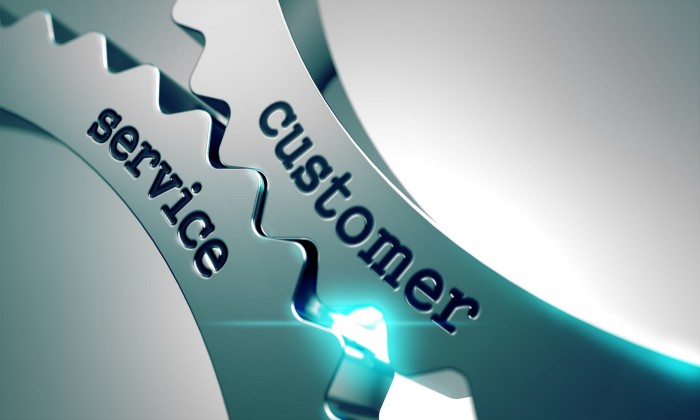Great Data Will Increase CLV and Grow Revenues
Published by Delpha on October 3, 2022
This article shows why data quality is fundamental for Customer Lifetime Value and Client Satisfaction and how AI will achieve it.
Growing a business is often connected to the attraction of new customers and potential leads. However, there is evidence that building loyalty with 5% more customers brings a raised average profit per consumer of between 25% and 100%. The importance of customer service, thus, cannot be underestimated.
Experiential marketing is already a big part of business strategies. 83% of organizations that believe it’s crucial to satisfy consumers also experience revenue growth. To deliver a great customer experience and service, it is essential to make intelligent data-driven decisions.

The cost of acquiring a new customer may be 6-7 times higher than the cost of retention. Customer Lifetime Value is a metric you should be looking after to keep track of a predicted revenue that a customer will generate throughout your relationship. The main point is that the higher the CLV, the more profit you produce.
How to increase CLV? Make the customer experience personalized and frictionless. If users are satisfied with the service, they are more likely to recommend it to their friends and vice versa. If the customer is unsatisfied with the product, he will spread the word. Net Promoter Score will help to measure the satisfaction and increase the CLV.
Customer success teams are just as important as the sales and marketing departments, so it is necessary to know how to improve their day-to-day operations and productivity levels.
When companies face a challenge with customer retention, they go and look for the best solutions in the market to fix it. One of the possible ways would be to hire more agents to deal with calls or messages to increase the productivity of the whole team.
Since 82% of B2B decision-makers assume that managers are unprepared for calls, another option could be to train staff before the interaction with clients.
Other resources suggest investing in a new customer service platform to facilitate operations is going to increase productivity, but there is still one element overlooked and that’s data quality.

Pain Points Customer Success Agents Face When using Salesforce
CRMs and engagement systems have made customer success teams’ jobs more efficient. However, with the appearance of more complex platforms, new challenges have arisen. With more data in these systems, the decision-making process becomes more sophisticated, putting the CLV at risk.
To make more intelligent data-driven decisions, it is essential to analyze the data and create accurate reports. According to Salesforce, 52% of companies still rely on excel spreadsheets to analyze contact center data. This statistic proves that much time is wasted on account research and data gathering rather than evaluating the insights and prioritizing the efforts. Some of the pains include:
- Time-consuming to clean the database
Due to inconsistencies across dashboards, customer success agents lose their productivity when dealing with mundane data management tasks rather than customer inquiries. Moreover, managers may face misalignment in individual workload due to miscommunication of critical metrics. - Difficult to gather the correct information
To provide a better service, customer success managers require a good understanding of the context: what agent-led accounts, what are the open leads, what is the closed opportunity revenue for the quarter, what are customers’ objectives, and so on. However, not all agents have the correct and updated information, leading to irrelevant solutions and frustrated customers. - Challenging to verify uniqueness
While working on a client refund request or any other inquiry, customer success managers should verify the case’s uniqueness to resolve the problem. Duplicate records complicate this task by taking the time on their removal rather than the resolution. - Problematic to recover after bad cases
Inaccurate and incomplete information often leads to irrelevant solutions, unnecessary calls, and irritating messages for customers. Poor support service leaves clients frustrated and unsatisfied, which worsens brand reputation. The lousy word spreads much faster than the good one, so it is pretty hard to recover after a failure to resolve an issue.

Proactive Solution to Improve CS productivity and CLV
Today’s customer support is mainly about self-service, which is why many businesses have switched to proactive customer service operations.
For many years now, companies have been using reactive customer service, meaning that when a client has a problem, he or she fills out a form, calls, or sends a message to the support team to initiate a CS response.
Getting a step ahead
A proactive approach in customer service means that the business addresses the customers first without consumers reaching out to the support team to resolve a problem.
Companies should make the first move to prevent any potential issues that a client could have and provide them with actionable insights. They should collect feedback, keep track of customer activity (reviews on social media, the reasons for calls, the objectives, and issues), and provide supporting material to act on inquiries.
Creating a knowledge base
According to Harvard Business Review, 81% of all customers try to resolve issues themselves before reaching out to the live support team. This is why having a decent knowledge base is critical for consumer satisfaction.
The support articles based on customer feedback and activity can help clients find a solution without calling or messaging the support agent. Plus, a knowledge base is helpful for the employees since it helps find the relevant solutions for each case faster and acts as a basis for machine learning techniques.
Understanding the needs of each client
In the likely event, a customer is unable to fix their problem with the knowledge base, the proactive approach behind the brand should be focusing on personalization for each account. Only 13% of customers believe that offers made by salespeople meet their needs.
Agents should consider the business need and objective of every client to increase the succession and satisfaction rates. This means gathering the updated and accurate information to provide a customized solution that fits the client’s needs.
- The proactive approach will save reps’ time to solve more complex issues that clients would not be able to do by themselves
- It will reduce the costs of a live interaction that accounts for $13 for B2B and $7 for B2C on average
- You will have higher customer satisfaction thanks to the personalized account management
It’s All About Data After All
No account manager ever wants to receive bad feedback from their client and see the customer frustrated. Consumer dissatisfaction mainly comes from inaccurate information or irrelevant solutions, which circles back to data quality problems that each organization has.
Businesses report that bad data negatively affected 54% of their customer relationships. It happens because CS managers either spend too much time updating the information of contacts or researching the cases and gathering data to help them solve their specific problem.
Whether you are hiring new staff, training the new coming CS agents, or implementing a new CRM, you must take care of the data. After all, nobody canceled the GIGO concept (if the garbage is input, the output is the same).
Even though 64% of businesses find enhancing data quality to be challenging, Delpha, an AI solution in Salesforce, has a resolution to this problem.

It ensures the good quality of data to significantly improve customer success teams’ productivity, saving resources and increasing the CLV of their customers.
How?
- Saves Time for Clients
Firstly, this assistant can automate time-consuming tasks like data cleaning, filing the missing contact details, and updating the existing records. It will improve the customer success team’s productivity and prioritize time on the actual client case. Moreover, Delpha is able to analyze the account’s information fast to propose the best solution from the knowledge base. - Verifies Data Easily
By detecting, removing, and merging duplicates, the AI solution eliminates wasted resources spent on data research and verification to offer better and more personalized customer experiences. The cleaner your data is, the better you understand the needs of your customers. - Improves Customer Lifetime Value
With clean, accurate, and good quality data, each manager can effectively and efficiently address and support customers. The correct phone numbers and relevant offers surely improve customer satisfaction, which leads to a better brand reputation and higher Net Promoter Scores. The higher these metrics are, the more willing your customers to stay loyal and purchase your product/service.

Increased customer retention can be achieved in just a few clicks. The quick resolution to the customer support challenges in Salesforce resides in the all-new AI solutions, just like Delpha.
Want to learn more about Delpha?






